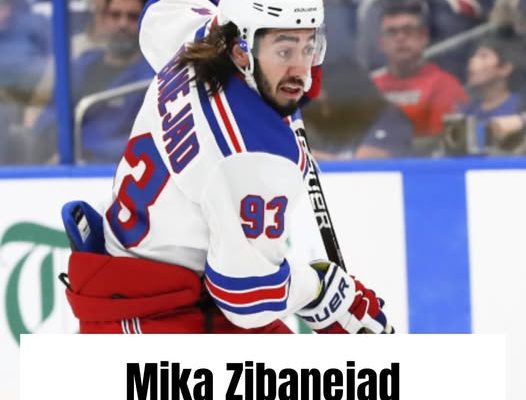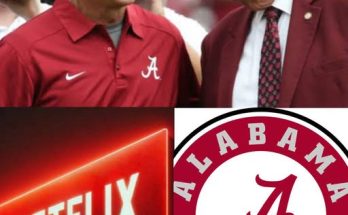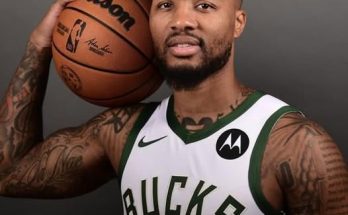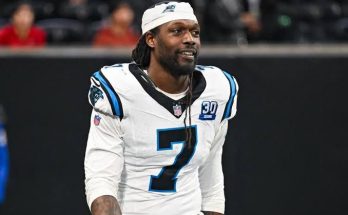The echoes of uncertainty have grown louder inside Madison Square Garden, and the once unshakable bond between Mika Zibanejad and the New York Rangers seems to be fraying by the day. With training camp underway and anticipation for the new NHL season rising, the atmosphere surrounding the franchise isn’t filled with the excitement of fresh beginnings. Instead, it’s thick with tension, clouded by doubt, and laced with the kind of rumors that rarely surface without smoke trailing from a fire. At the center of this increasingly combustible situation is Mika Zibanejad—a beloved star, a fan favorite, and until recently, one of the faces of the Rangers franchise. But now, his once-secure place in the lineup is under intense scrutiny, as whispers of dissatisfaction from both sides have begun to turn into open questions about whether his time in New York is coming to a dramatic, unexpected close.
Just three seasons ago, the idea of Zibanejad being traded would have been blasphemous among Blueshirts faithful. The Swedish forward, known for his offensive brilliance and quiet leadership, had seemingly cemented himself as a cornerstone of the Rangers’ long-term plans. He signed an eight-year, \$68 million extension in 2021 that was meant to keep him in New York until 2029, signaling mutual confidence and commitment. Zibanejad, with his scoring acumen and calming presence, was viewed as the perfect complement to rising stars like Adam Fox, Igor Shesterkin, and Alexis Lafrenière. But now, less than halfway through that deal, the once-rock-solid foundation appears to be cracking under pressure.
Sources close to the team describe a locker room that has grown increasingly divided, with some veterans growing frustrated by changes in coaching philosophy and unclear team direction. Zibanejad, typically one of the more reserved voices in the room, has reportedly become more vocal in recent weeks—a rare shift that’s fueling speculation about internal conflict. Though no one within the organization has gone on record to confirm a rift, those around the team say the tension is unmistakable. One team staffer described the energy at camp as “palpably awkward,” noting that Zibanejad has been “noticeably distant” and “not his usual self” since arriving at the facility.
This turmoil comes at a particularly delicate time for the franchise. Following another postseason letdown last spring, patience is wearing thin among fans and front-office personnel alike. The Rangers were built to contend for a Stanley Cup, and falling short again has cast doubt on whether the current core has what it takes to get over the hump. While the blame for that failure doesn’t fall squarely on Zibanejad’s shoulders, the perception that he didn’t rise to the moment in big playoff games has added fuel to the fire. Combined with questions about his fit in new head coach Kris Knoblauch’s evolving system, Zibanejad’s role has shifted from untouchable centerpiece to expendable asset almost overnight.
Perhaps most alarming for fans is the silence from Zibanejad himself. Known for his professionalism and steady demeanor, he’s usually the first to speak to reporters, even after a tough loss. But since the camp began, he has spoken to the media only once, and in that brief session, he offered clipped answers and avoided any questions about his future with the team. His body language said more than his words—tension in the shoulders, eyes that never quite met the cameras, and a tone that suggested someone battling conflicting emotions. For a player who has spent nearly a decade building trust with the fanbase, the shift in demeanor hasn’t gone unnoticed.
Complicating matters further are reports that several teams have quietly reached out to the Rangers in recent weeks, gauging the possibility of acquiring Zibanejad in a trade. Among the rumored suitors are the Boston Bruins, the Calgary Flames, and the Minnesota Wild—teams looking for a proven top-six forward who can provide leadership and elite playmaking. While none of those conversations have advanced past the preliminary stage, the fact that they’re happening at all is a seismic development. It suggests the Rangers are at least willing to entertain the idea, which would have been unthinkable just a year ago.
Financially, a trade involving Zibanejad would be complicated. His contract carries a full no-movement clause through the 2027-28 season, meaning any potential deal would require his approval. That fact alone gives him significant leverage, but sources say the clause might not be the impenetrable wall it once was. If Zibanejad no longer feels valued by the organization—or if he believes his best chance at winning lies elsewhere—he could be persuaded to waive it under the right circumstances. And for a team like the Rangers, moving a high-salary player could open up much-needed cap flexibility to retool the roster around younger talent.
There’s also the human element to consider. Zibanejad has always worn his heart on his sleeve, and his connection to New York runs deep. He’s made the city his home, immersed himself in the community, and become a role model for young fans. Leaving that behind wouldn’t be easy, and any decision to do so would likely weigh heavily on him. Yet, professional sports are as much about timing and fit as they are about loyalty and emotion. If the organization no longer views him as central to their future plans, then continuing the partnership out of sentiment alone would be a disservice to both sides.
Inside the front office, opinions are reportedly split. Some executives still see Zibanejad as a vital leader who can guide the team through its next phase, especially as young stars like Lafrenière and K’Andre Miller mature into more prominent roles. Others argue that the time is right to make a bold move—clear the decks, shake up the core, and send a message that mediocrity will no longer be tolerated. General Manager Chris Drury is walking a tightrope, trying to balance short-term competitiveness with long-term vision. His decision on Zibanejad could define his legacy in New York.
From the fans’ perspective, the prospect of losing Zibanejad is gut-wrenching. He’s not just a player; he’s a symbol of resilience, having emerged as a superstar after being traded from Ottawa and reinventing himself into one of the league’s premier centers. His five-goal masterpiece against the Capitals in 2020 remains one of the most iconic individual performances in recent franchise history. Letting go of a player like that feels like severing part of the team’s soul. Yet, those same fans have also grown impatient. The promise of a championship window has come with heartbreak and underachievement, and the hunger for change is real.
Whether this storm will pass or erupt into a full-blown organizational shake-up remains to be seen. Zibanejad still has the tools to be a dominant force on the ice, and a strong start to the season could quell much of the drama. But if the tension continues to escalate, and if trade rumors intensify, the Rangers may be forced to make a move they never envisioned. Sometimes, in the unforgiving world of professional sports, even the most cherished eras come to an end not with a grand farewell, but with an unexpected jolt—quiet whispers that turn into roars, private frustrations that become public reckonings.
For now, all eyes remain fixed on Madison Square Garden, where the drama is playing out in real-time. Every practice, every interview, every shift Zibanejad takes on the ice feels magnified under a spotlight that won’t dim anytime soon. If this is the beginning of the end for Mika Zibanejad in New York, it’s a story worthy of heartbreak, reflection, and perhaps, eventual understanding. And if somehow, both sides can rediscover what once made this partnership so powerful, then maybe—just maybe—this chapter still has a few triumphant pages left to write. But as things stand today, the crisis at the Garden is no longer just a warning sign. It’s a siren echoing across the NHL, signaling that something significant may be on the verge of happening.



